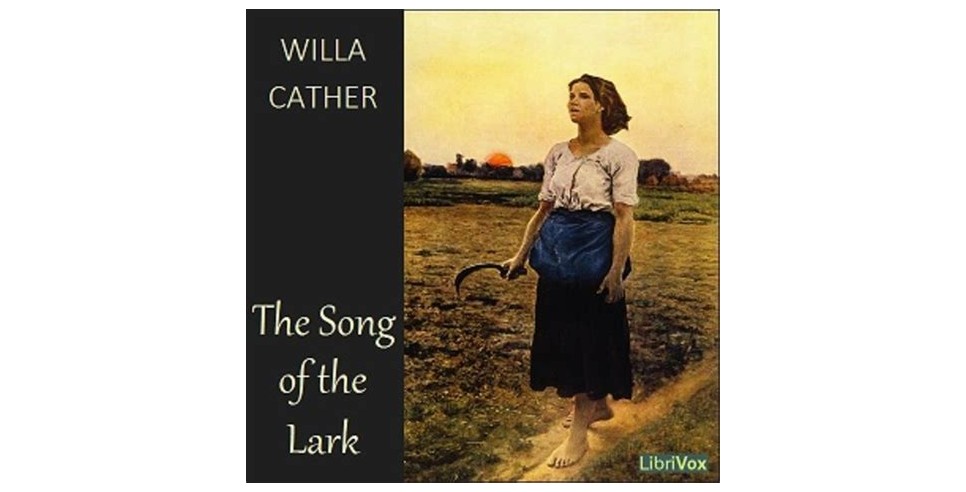
The Song of the Lark
By Willa Cather
Penguin Books
434 pp
The genius of Willa Cather lies within the knitted pastiche of her intricate storytelling. On the surface, Thea Kronborg grows up in the modest home of her Swedish immigrant family. Thea’s father is a minister, and her mother is a sturdy woman of heart. Thea Kronborg’s town is inhabited by an eclectic cast of pioneers, all of whom are seeking opportunity. While the small Colorado prairie town she lives in is fictitious, the rhythmic ebb and flow of day-to-day life captures the great plains in the mid-nineteenth Century.
Thea’s family decides that she must become more involved with the church—to create a larger presence to thwart any gossip. “The fear of the tongue, that terror of little towns, is usually felt more keenly by the minister’s family than by other households. Whenever the Kronborgs wanted to do anything, even to buy a new carpet, they had to take counsel together as to whether people would talk.” This is where Willa Cather’s genius shines. How often we must do things to save face, for the sake of appearances, and to show that we are on the up and up as a proactive move to avoid gossip, criticism, and outright scandal.
Thea plays the piano and sings at church, where her musical talent is astonishing to a few good men, admirers of sorts, who clearly see that she embodies the soul of a true artist. But to realize this artistry, she must leave her small town.
Young music prodigy Thea Kronborg is soon driven to actualize her talent with singular focus at the expense of living an ordinary life. The true artist can do nothing other than what she was destined to do. She finds dissatisfaction with the common and the mundane. “She looked into the sand hills until she wished she were a sand hill.” In her epiphany of becoming one with the sand hill, she recognizes that she is different and beginning to embrace the depth and breadth of that difference— the fullness of who she’s becoming. Every artist who has extraordinary talent eventually comes to an awareness that true talent is far larger than any one person.
Many have suggested that Willa Cather was using the guise of great musical talent to write about her own writing talent and the journey to becoming as great an artist as one is destined to be. This might be so, but the irony here is Cather knew nothing about music. She could not sing, nor could she play any musical instrument. The depth of musical acumen that she displays through the life of the character Thea Kronberg is nothing short of miraculous, and the result of having spent many hours conducting grueling, if not, exhaustive research.
By inhabiting the character of Thea Kronborg, Willa Cather’s genius is further revealed. She is exploring her own soul as an artist. As Cather states, “Your work becomes your personal life. You are not much good until it does. It’s like being woven into a big web. You can’t pull away, because all your little tendrils are woven into the picture. It takes you up, and uses you, and spins you out; and that is your life. Not much else can happen to you.”








